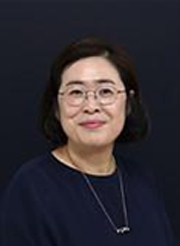
- NameEunsil Kim
- Phone041-580-2324
- Phone041-580-3574
- Fax041-580-3570
- Website-
Introduction to the Department
The addiction rehabilitation counseling major fosters addiction rehabilitation counselors by systematically and in-depth training and cultivating international expertise and practical skills for all people interested in addiction rehabilitation counseling and treatment, including field addiction experts, social workers, counselors, family members, mental health workers, and school counselors.
Educational Goals
Understand the seriousness of various substance and behavioral addiction problems and produce addiction experts with both professional knowledge and practical skills for various phenomena of addiction problems.
A happy welfare society is realized by helping those who are experiencing difficulties due to addiction to various substances and behaviors such as smoking, drinking, drugs, gambling, and smart media, which are prevalent in modern society, and preventing various problems that may arise from this.
Characteristics and advantages of MGARC
- 1Acquire International Addiction Expert Certification
- Qualification of KNAADAC (Korea National Association of Alcoholism and Drug Abuse Counselors) for international addiction counseling
- International Centre for Credentialing and Education of Addiction Professionals (ICCE) qualifies for international addiction specialists - 2Qualification for Level 2 addiction experts, Level 2 addiction psychology experts, and Level 2 counseling experts of the Addiction Counseling Society organized by the Korea Addiction Experts Association
- 3A renowned faculty members from abroad and domestic.
- 4Providing short-term overseas training and employment opportunities at overseas addiction specialized institutions such as the United States, Thailand, the Philippines, Malaysia, Nepal, etc
- 5Internships and employment links of domestic and foreign addiction agencies, including the Child and Family Counseling Center and Student Life Counseling Center affiliated with Namseoul University
- 6Operation of various psychological counseling workshops and qualification courses, including motivation reinforcement counseling, psychodrama, 12-step facilitation therapy, cognitive behavioral therapy, and resolution-oriented counseling
- 7A person with an average GPA of 3.0 or higher shall be paid Performance scholarship, 25% of the tuition.
Professors

The Depatment chair of MGARC
- Telephone 041-580-2324
- E-mail kimes@nsu.ac.kr
- Areas of interest/speciality 애착 및 관계트라우마/심리극/경험치료/아동 청소년 중독

- Telephone 041-580-2714
- E-mail loveppd@nsu.ac.kr
- Areas of interest/speciality 소아 / 청소년 정신장애 / 중독(인터넷, 도박)

- Telephone 041-580-3053
- E-mail hkim@nsu.ac.kr
- Areas of interest/speciality 행위중독/학교사회복지

- Telephone 041-580-3054
- E-mail jollykang@nsu.ac.kr
- Areas of interest/speciality 중독 / 중독자 가족 / 정신건강

- Telephone 041-580-3055
- E-mail 103198@nsu.ac.kr
- Areas of interest/speciality 가정폭력 / 아동학대 / 정신건강
Curriculum
-
Research Methodology
Aim to Study methods, procedures, and techniques for conducting research to scientifically analyze and review the current status of addiction and to consider the direction of more effective therapeutic intervention.
-
Neuropsychology
An overview of the knowledge on the structural and functional organization of the brain nervous system related to addiction, understanding the various effects of addiction on the brain and its consequences, and cultivating the ability to apply it to addiction counseling practice.
-
Group Counseling for Addict
In addition to the theoretical basis of group counseling, which is widely used as an important methodology in the field of addiction, various group counseling techniques are acquired by students of this course.
-
Addiction Rehabilitation Psychology
This course help students develop an appropriate rehabilitation plan in the process of choosing, evaluating, and identifying addiction recovery. Students can assess client’s physiology, mental, social-mental strengthening ability to support recovery with comprehensive intervention.
-
Seminar in Addiction Counseling
This course will help students to understand the rapidly changing trends in the addiction field, discuss various issues, and provide lectures by external experts in each addiction field to understand the latest research trends and clinical field.
-
Introduction to Addiction Counseling
Learn about individual counseling, which is a form of intervention in addiction, and cultivate the ability to consult with the addicts through the training of various counseling theory and practical use.
-
Ethics of Addiction Counseling
This course provides basic ethics in the practice of addiction. The ideology and concept of addiction law, the historical formation and development background, the content, and the system of relevant ethical issues will be dealt with.
-
Psychological Assessment
By learning and training comprehensive and systematic evaluations on the various aspects such as individual cognition and emotions, it has the ability to explain and interpret the understanding of psychological tests, acquisition of how to perform, and psychological test results.
-
Addiction Prevention
Students learn the theory, techniques and knowledge of addiction prevention. Also learn about the history of addiction prevention and learns risks and protection systems and resilience factors. Students will be able to understand the importance of establishing and evaluating prevention programs. And also learns knowledge about approaches for effective education for clients, families and communities.
-
Psychopathology
Learning knowledge about the origin of mental disorders, developmental processes, and symptoms of mental disorders in individuals. Presents the concept and criteria of dual diagnostic disorders, a model of the relationship between drug abuse disorders and mental disorders.
-
Introduction to Addiction
This course provides the basic knowledge of substance addiction and acting addiction, learning about core knowledge such as the definition of addiction, the definition, epidemiology, scope and history, and the type of material and action, addiction model, preventive model, psychiatric and rehabilitation Learning a variety of therapeutic approaches comprising.
-
Behavioral Addiction
Learn about the causes and therapeutic approaches of addictions related to gambling, internet, work, and sex etc. which have recently expanded and cause serious problems, and also learn about therapeutic intervention programs.
-
Addiction Counseling Practicum
This course provides on-site experience of addiction cases from addiction rehabilitation services agencies under guidance and supervision. Applying the core concepts of addiction learned in the field and learning practical techniques.
-
Family Counseling
Students learn practical counseling methods and strategies to understand and intervene in the family structure and dynamics to help clients who experience difficulties with addiction and Personal problems that arise from family dynamics and family problems.
-
Seminar in Counseling Psychology
This course aims to explore the latest research in counseling psychology and the teachings of field experts.
-
Seminar in Psychological Assessment
Students will Learn how to interpret psychological evaluation data after learning and applying psychological evaluation tools.